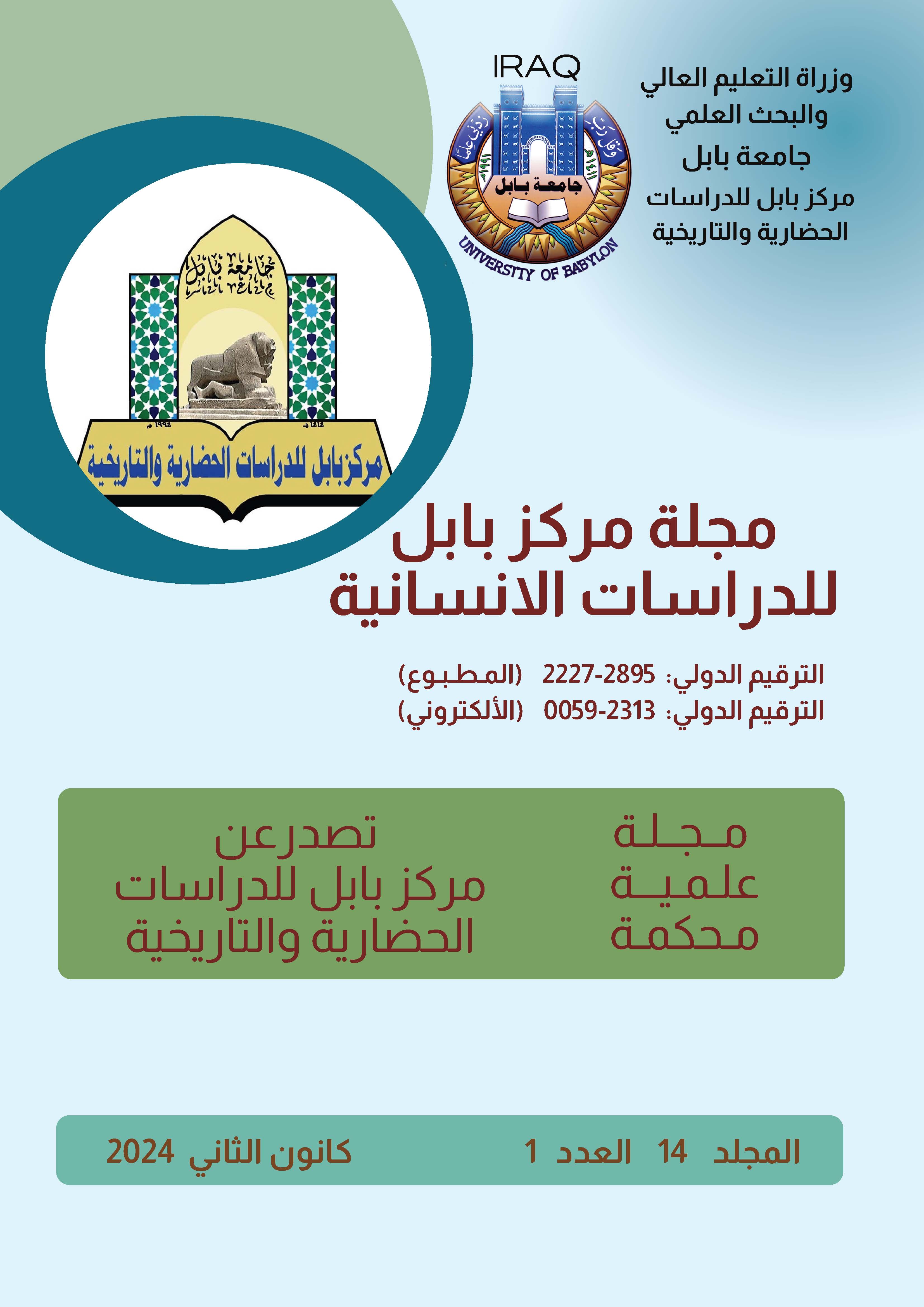The inferences of the textual argument in the sermons of Imam Ali, peace be upon him, in Nahj al-Balaghah
Keywords:
Syntactic argument, inferences of textual argument, discourse techniques, Imam Ali, Nahj al-BalaghahAbstract
Guidelines are the thing that leads to the required certification, and it can be said that they are what indicates the validity of the claim. Inferential directives come by using a word or structure, with textual or mental evidence, and so on: The grammatical directives of the argument are: textual or rational evidence in affirming the opinion of the addressee and proving against it, or negating them both, and proving another ruling other than them. The textual evidence is what defines sacred or literary evidence, and as for the rational evidence, it represents one of the evidences of grammarians based on language logic, or abstract mental logic, which is in fact an aspect of argumentative thought based on logical standards. Ali (peace be upon him) It is of great importance in directing the Alawite discourse, and in this study I followed the descriptive and analytical approach, and reached several results, including: He deviated them so that his saying would be a compelling argument against them and a witness to their actions.
It is clear from the texts that the Imam, peace be upon him, supported his statement with many references that strengthen his sharpness, including the Holy Qur’an and the hadith of the Messenger, may God bless him and his family and grant them peace, to show that the Messenger is the religious, intellectual, and cultural authority on which he relies in what he says. Whoever doubts or objects has doubted and objected to the Messenger, because the hadith represents the solid ground upon which he relies, and from which he proceeds in persuasion, because of the argumentative connotations it carries that have a high impact on the souls of its recipients, achieving understanding, enjoyment, and conviction at the same time.







